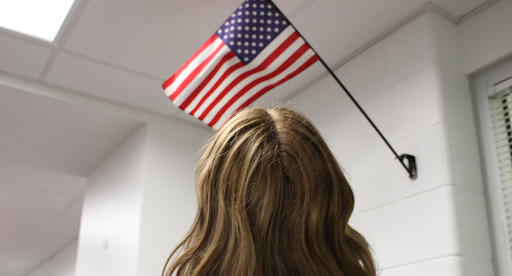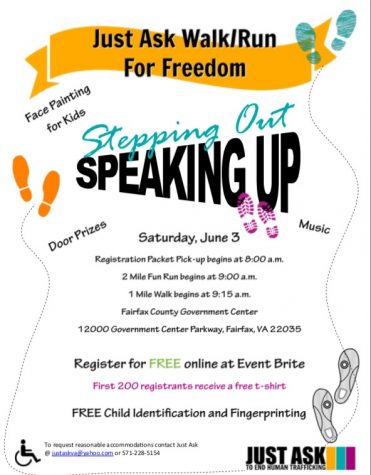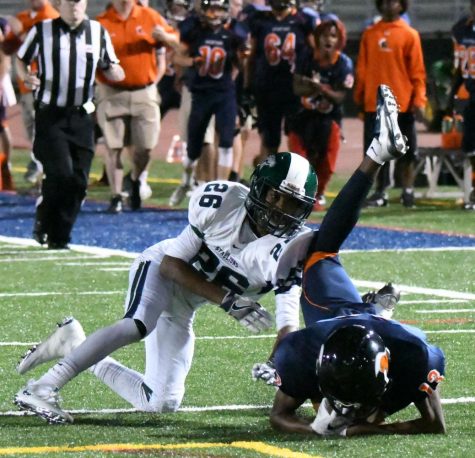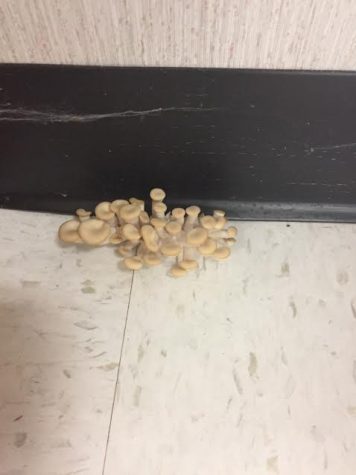New policy throws junk food in the trash
Thanks to the Obama administration, and the push of Michele Obama, new policies have been set in place to drastically decrease the number of junk food outlets within the school.
Besides the changes in the lunch lines, and what is sold in vending machines, clubs will no longer be able to sell many of WS students’ favorite treats. The donuts, previously sold by the Spanish Honor Society every Friday at the end of the month, were an occasional morning treat for WS students.
“Teenagers want junk food, not diet soda,” said sophomore Blake Kirkman. “Not selling these items in school doesn’t mean students won’t get it elsewhere after school.”
There are many food outlets within 0.5 miles of the school where students can still enjoy an oily, chemically-filled snack. McDonalds, 7-11, and Popeyes all offer food similar to, if not worse than what clubs sell. Keith Owens, head of WS Guitar program, will no longer be able to hold the beloved “Chick-Fil-A Wednesdays” that filled the stomachs of the athletes, musicians, and scholars of WS. The revenue from this, along with several off-campus fundraisers, went towards a digital soundboard for the Battle of the Bands.
“This is lost revenue for all organizations, small clubs will downfall,” said Owens. “There is no other way to gain that money.”
Spanish Honor Society, another organization heavily impacted by these changes, is faced with making difficult decisions. Sponsor and Spanish teacher Mary Dailey agrees with the initiative but is conflicted on how to deal with this rule. Their Krispy Kreme donut sales, which previously made up 60 percent of the society’s funds, are no longer allowed. That money funded the end of year trip to King’s Dominion or Busch Gardens, as well as senior scholarships. Instead, the society is considering hosting a carwash, doing a raffle and other fundraising activities.
“Selling approved foods is impossible, because anything kids would want to eat will not fit the guidelines,” said Dailey.
For the battle against junk food in general, Dailey believes that community involvement is key.
“Parents must get behind school policies in order to really make an impact,” said Dailey.
She knows that with time, it will make a difference on students’ health, and that SHS will find another way to collect the necessary money.
Trish Kidwell, cafeteria manager, reports that sales have gone down since these changes took place. While improved eating is important, she places some weight upon the decrease in time spent outside by teens, which leads to health deterioration.
“Obama is pointing the finger at the wrong people, this is unfair blame,” said Kidwell.
Assistant Principal Becky Brandt, the freshman class administraor whose long-time involvement in the school and support of its activities is well-known, supports the initiative but is taken aback by its force.
“This is America,” said Brandt. “We must choose what we want to do. Sometimes, the government takes on more responsibility than it has to.”
Balance is key, and this ordeal may bring more student frustration than positive impacts. There are people who will make good, nutritious food choices with the occasional treat, just as there are those who will abuse the unhealthy foods.
“While I am in favor of promoting health and balance, it’s more fruitful to educate students, not take away things they enjoy,” said Brandt.
At first, students and school activity sponsors may strongly oppose these changes and revolt. But the First Lady and her allies hope that, eventually, they might make better choices regarding what they eat. Then, those organizations that relied on this kind of fundraising previously will find alternatives, which could have positive effects on the WS community.
“It will make a difference with time,” said Dailey. “Enforced now, effective in the future.”










